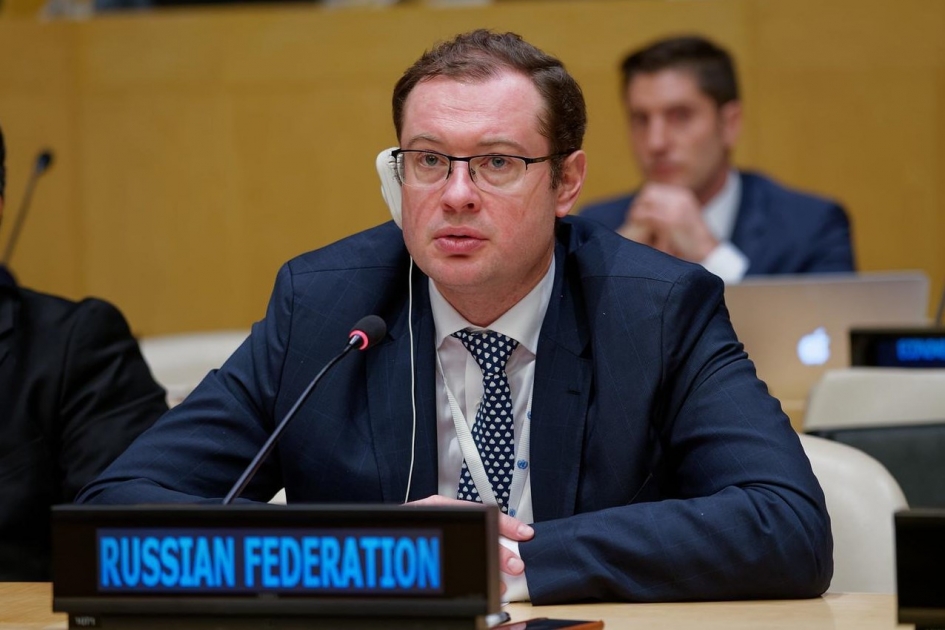Statement by Mr. Dmitry Chumakov, Deputy Permanent Representative of the Russian Federation to the United Nations, at the special event on the “State of Food Security and Nutrition in the World – 2019”
Mm. President,
First of all, may I warmly welcome the principals of the Rome-based UN agencies – FAO, IFAD and WFP – that are at the forefront of the global fight against hunger. We also thank the Deputy UN Secretary-General, the Executive Director of UNICEF and WHO representatives for participating in today's event, as well as for their contribution to the preparation of the report on the state of food security and nutrition in the world.
We are happy to observe the strengthened coordination within the UN system in promoting the eradication of chronic undernourishment. A strong example of this is the report just presented, which is an important tool for reviewing the implementation of the Sustainable Development Goals, in particular, SDG2.
Unfortunately, the report’s data is not comforting. They indicate – for the fourth year in a row – the increase in prevalence of hunger on the planet. During the reporting period, the number of chronically undernourished significantly exceeded 800 million people and again returned to the level of 2012-2014. Unacceptably high are also the rates of children under 5 years of age who suffer from stunting and wasting, as well as global statistics on the prevalence of obesity. All that puts at risk not only the achievement of SDG-2, but also the realization of sustainable development in general.
To reverse this negative trend, it is important to understand its key determinants. We welcome that the authors of this year’s report focused on the analysis of the impact of economic slowdown on food security. It allows to address challenges that are pertinent, in a varying degree, for all countries, for instance, the erosion of purchasing power of the population or reduced investment in the agricultural sector.
In Russia, which does not face the problem of chronic undernourishment at the country scale today, we try to leverage those linkages in the opposite direction. That means to use the demand for food products, support to agricultural production and rural areas in order to make agriculture one of the drivers of our economy’s growth. To reach that goal, we introduce a set of measures to improve the agri-food sector, including through its technical re-equipment and digitalization, crediting and attracting investments, making it environment-friendly and increasing its efficiency, promoting rural development. As a result, our agriculture becomes less vulnerable to fluctuations in market conditions, and domestic consumption is less dependent on imports. Our country continues to hold world leadership in the supply of wheat abroad. The President of the Russian Federation has set a target to double the value of our agricultural export by 2024, bringing it up to USD 45 billion.
Sustainable agricultural development, food security and nutrition are among Russia’s priorities in terms of international development assistance. We fund joint projects with FAO to promote sustainable soil management and curb antimicrobial resistance in the food chain in a number of countries of Eastern Europe and Central Asia. Together with WFP, FAO and IFAD, we implement programmes to optimize school feeding systems in the same region, as well as in Africa. At the end of last year, a FAO project was launched with our financial support to assist the Syrian Arab Republic in the rehabilitation and sustainable development of agriculture.
Together with our partners, we are committed to continue contributing to the realization of the “Zero Hunger” vision in the world.
Thank You.
